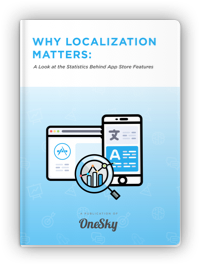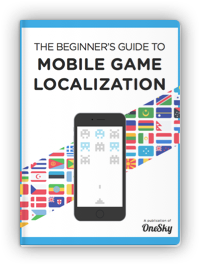Localization Strategy in 2025: Everything You Need to Know
The key difference between a company that merely exists internationally and one that thrives lies in a powerful localization strategy.
Studies reveal that businesses investing in localization can enjoy revenue boosts of up to 15% by tailoring their offerings to local markets.
A solid localization plan is your ticket to successfully navigating new territories and connecting with diverse audiences.
Consider this: speaking a language fluently doesn’t guarantee you’ll blend in; cultural nuances matter.
Localization isn’t just about translation—it’s about embodying your brand’s identity and ensuring that your visuals and values resonate with local customers.
For brands seeking global recognition, the challenge is to genuinely connect with new markets while holding onto their core essence.
Let’s explore proven tactics for effective localization that can unlock your global potential!
- What’s Localization Strategy?
- Why Does Localization Matter for Business that Wants to Go Global?
- Which Country/Market Should We Pick for Localization?
- Essentials for a Winning Localization Strategy
- Step-by-Step Guide on Developing a Successful Localization Strategy
- Measuring the Effectiveness of Your Localization Strategy
- Navigating Localization Challenges: Our Insights for Success
- Successful Examples of Localization Strategies
- The Future of Localization Strategy: Harnessing AI for Global Impact
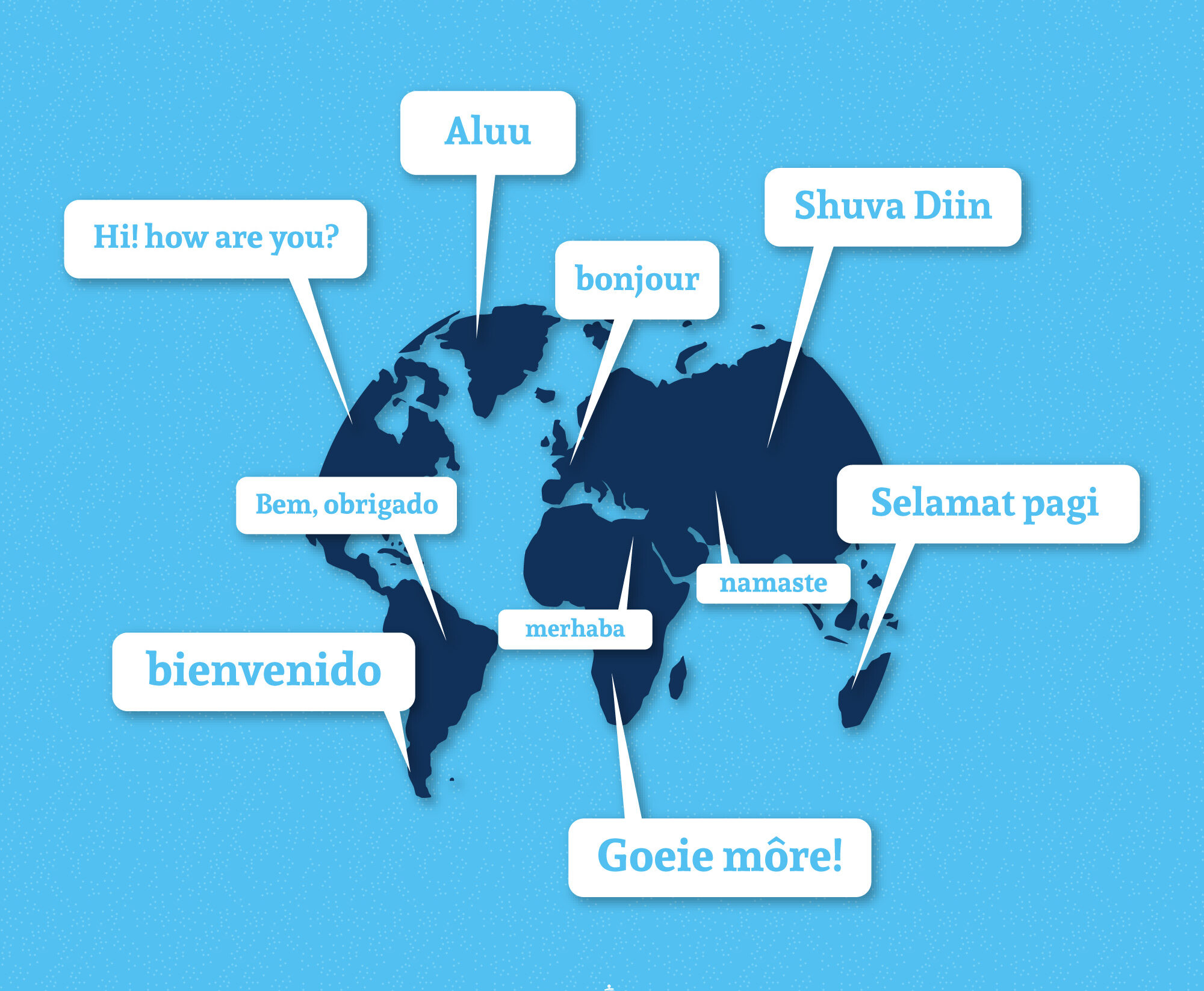
What’s Localization Strategy?
A localization strategy is your company’s approach to adapting content and messaging for new audiences in different regions, extending beyond simple translations to include regional and cultural nuances.
It shapes your market choices and content objectives based on your business model.
This process involves tailoring various elements to fit local contexts, including:
- Product Features: Adjusting functionalities for local needs
- Visual Content: Modifying images and graphics for cultural relevance
- Cultural References: Adapting idioms and symbols for local understanding
- Formatting: Aligning date, time, and measurements with regional standards
- Economic Adjustments: Localizing pricing, currency, and payment methods
- Compliance: Adhering to local laws and regulations
- Brand Identity: Tweaking branding and messaging for authenticity
- Marketing Channels: Customizing content across blogs, social media, and ads
- Support Systems: Tailoring customer support to regional preferences
An effective localization strategy integrates cultural insights and market understanding into your communication, ensuring a meaningful connection with your audience and driving success in new markets.
Why Does Localization Matter for Business that Wants to Go Global?
Expanding internationally presents a treasure trove of opportunities, yet many businesses hesitate due to perceived complexities.
Here’s why investing in localization is critical:
- Facilitates Smooth Market Entry: Localization helps you address cultural nuances and avoid potential PR blunders, allowing for quicker connections with local customers.
- Provides a Competitive Advantage: By localizing your offerings, you level the playing field against established local players and position yourself for greater market share.
- Improves Customer Satisfaction & Builds Loyalty: Tailoring the user experience fosters trust and encourages customers to become loyal advocates for your brand.
- Increases Revenue Potential: With a broader audience, the chances for higher profits improve. Efficient localization processes enable you to maximize your investment and streamline operations.
Prioritizing a strong localization strategy enables your business to succeed in the global landscape, fostering deeper connections and ensuring sustainable growth.
Moreover, a successful localization strategy will help you enter new target markets, gain a competitive edge, enhance customer satisfaction, and build a loyal customer base.
Business Expansion

The market research you conduct as part of the localization strategy will help you identify the potential target markets for your products. Upon identifying the new target markets, you can simply translate the product-related content into the target market’s native language and modify the functionalities of the product to meet its preferences.
Here is the approach you can use to build a localization strategy for business expansion:
- Make both internationalization and localization a part of your overall marketing strategy.
- Collect as much data as possible about the target audience and make data-driven decisions.
- Develop clear and measurable objectives for your localization strategy.
- Identify target markets and define their language preferences and cultural nuances.
- Create a roadmap for the localization process. This may include determining style guides and quality assurance checklists.
- Develop key performance indicators (KPIs) for your localization team.
- Create a review and update process.
Gain a Competitive Edge
Two factors play a crucial role in an organization gaining a competitive edge: brand differentiation and consistent brand positioning.
- Brand differentiation: The competition in global markets is getting fierce, with both the local and global brands competing with one another to gain market share. The best way to differentiate your brand in this intensely competitive environment is to localize your product. Localization helps you differentiate your brand from international players who don’t localize their products and gain an edge over them. Moreover, it creates a level playing field to compete with local players and capture their market share.
- Consistent brand positioning: Branding messages that align with the cultural norms and preferences of local people will give your organization a unique brand identity, which translates into a competitive advantage over a period. By providing glossaries, terminology repositories, and a context for the localization, a localization strategy will help your localization experts come up with branding messages that are consistent with brand positioning as well as the cultural norms of specific regions.
Improved Customer Satisfaction
Customer experience and customer satisfaction go hand-in-hand. Products with superior user experience (UX) features will increase customer satisfaction rates significantly.
So how do you create superior UX? The answer is the localization strategy!
For instance, an effective localization strategy will improve the UX of your mobile application by adapting its menus, images, colors, date formats, currencies, and payment methods to the preferences of local people. It personalizes the app experience so that the users will find it useful and engage with it more. Higher engagement leads to improved customer satisfaction rates.
Greater Brand Loyalty
People trust companies that provide information in their native language. For instance, 40% of people never buy from websites in other languages due to a lack of trust. An effective localization strategy helps you gain customer trust by accurately translating your e-commerce websites and mobile apps into the customer’s native language and creating meaningful relationships with them. The trust factor motivates people to stick around with your products and become true advocates for your brand.
Which Country/Market Should We Pick for Localization?
Business environments differ from one country to another. When a company enters a foreign market, it may face several challenges related to language, supply chain, compliance, culture, local competition, workforce, and so on.
A localization strategy may not address all these challenges, but it will surely make your offering relevant and tailored to the potential customers in your target market. It will help you address the language and cultural barriers and recreate the product to provide a seamless and personalized experience throughout the customer journey in new markets.
Creating a suitable localization strategy is not an easy task. Businesses should put a lot of effort into researching the market, gathering and organizing resources, and recreating the product to successfully implement localization strategies.
The vital aspect of planning a localization strategy is evaluating the preferences, tastes, cultural differences, and localization needs of people in different markets.
Language preferences
Language is the major barrier to international expansion. There is a high possibility that your target foreign market may speak a different language from your host country’s language. So the first thing you should do is to check the language preferences.
The following questions may help you understand if there is a real need for translating your product into the target market’s native language:
- What is the population size of the local market?
- What is their native language?
- Do they speak any other language than their local language?
- How many native speakers are there?
- In which language do they use the internet?
- How many people use the internet in their native language?
Cultural Norms

The success of a product depends on how effectively it meets the cultural expectations of the global audience. The cultural norms of no two countries are the same. For instance, Americans are friendly and outgoing while French people are private. It is very common for people in America to go on dates with strangers, but people don’t date in France. So carefully evaluate the local cultures of your target foreign markets and adapt your product to meet those cultural norms.
Purchasing Preferences
People in different countries have different purchasing habits. For instance, the credit card penetration in Germany stands at 7.2 cards per 100 individuals. It means Germans are averse to credit cards and debt. If you are planning to localize your product to Germany, you should incorporate other payment methods such as debit cards, PayPal, and online banking.
The following questions may help you gain an understanding of purchasing preferences of people in your new target market:
- What are their browsing preferences? Do they use mobile or desktop?
- What payment methods do they use?
- What currency options are popular in the country?
- Does user-generated content such as reviews and social media opinions influence their purchase behaviors?
Essentials for a Winning Localization Strategy
To thrive in international markets, your localization strategy must incorporate these key components:
1. Market Analysis
Dive deep into research to identify promising markets.
Evaluate market size, consumer preferences, and local competitors while understanding cultural norms and purchasing behaviors.
2. Cultural Insights
Approach new markets with empathy.
Learn about local customs, values, and social dynamics to avoid stereotypes and build authentic connections.
3. Strategic Decision-Making
Use your market insights to make informed decisions.
Set a budget that aligns with your business goals and identify which elements of your product or service need localization, including language and design.
4. Execution Planning
Outline a clear execution plan that details necessary resources, timelines, and processes for translation and adaptation.
Utilize AI-powered translation tools to streamline workflows, and assign roles to ensure collaboration.
See also: AI Translation: What It is, Top 10 Tools, What Future Holds
5. Campaign Measurement
Establish a robust framework for evaluating success.
Define KPIs that reflect your goals, such as market penetration and ROI, and regularly analyze these metrics to refine your strategy.
6. Competitive Awareness
Understand your local competitors, their strengths, and weaknesses. This insight helps position your brand effectively within the market.
7. Local Expertise
Collaborate with local experts who understand cultural dynamics and market trends. Their guidance can prevent costly missteps and enhance your strategy.
Integrating these components into your localization strategy lays a solid foundation for meaningful engagement in new markets, ensuring your brand resonates with local audiences and builds lasting connections.

Step-by-Step Guide on Developing a Successful Localization Strategy
Ready to create your own localization strategy?
While the process may differ across organizations, it generally involves 3 main stages:
Step 1: Analysis
This critical first stage focuses on understanding your company’s needs and objectives.
Conduct thorough market research to learn everything about your target audience, including cultural nuances and consumer behaviors.
Evaluate your competitors, and take stock of your available resources—budget, timeline, and team capabilities are all vital.
Your goal here is to gather comprehensive information that informs your decisions.
Engaging with local experts can provide invaluable insights into the market landscape, helping you avoid potential pitfalls.
Step 2: Choice
Using the insights from your analysis, determine the best path forward.
This stage involves selecting:
- The right localization technology to integrate into your digital ecosystem
Tools like OneSky can streamline your translation processes and enhance project management, making your entire localization effort more efficient.
- Suitable localization services for adapting your offerings effectively.
OneSky’s comprehensive solutions can help you navigate the intricacies of localization, ensuring your content resonates with local audiences.
- Reliable language service providers as needed.
Here, you’ll also define KPIs, assign roles and responsibilities, establish a budget, set timelines, and outline how you’ll periodically review and update your strategy.
Believe or not – a powerful tool like OneSky can streamline your localization efforts, making these decisions simpler.
See also: AI Translation Software: Top 10 that Power Growth and Communication
Step 3: Execution
With information gathered and decisions made, it’s time to put your localization strategy into action.
Outline workflows from content submission to translation delivery and clarify roles.
Key actions during this stage include:
- Internationalization: Ensure your content is formatted correctly and ready for localization.
- Preparing Assets: Collect, organize, and prepare files for translation.
- Setting Up the Localization Environment: Configuring your translation management system so stakeholders have access.
- Content Localization and Revision: Engage a team of linguists to translate and review your content.
- Deploying Localized Content: Publish your translated content appropriately across platforms.
- Localization Testing and QA: Ensure quality through both automated checks and manual reviews by native speakers.
To maximize efficiency, your localization process should ideally run parallel to product development, allowing linguists to begin work as soon as developers provide new content.
This integration into agile cycles is known as continuous localization.

Measuring the Effectiveness of Your Localization Strategy
In today’s global marketplace, simply translating your content isn’t enough to win over new audiences.
To truly resonate in diverse markets, you need a robust localization strategy that’s backed by solid measurement. But how do you know if your efforts are hitting the mark?
By employing clear metrics and ongoing evaluation, you can gauge the impact of your localization initiatives and make data-driven adjustments that drive success.
Here’s how to effectively measure the performance of your localization strategy and unlock the full potential of your global endeavors!
1. Set Baseline Metrics
Before launching your localized content, identify key performance indicators (KPIs) and record their baseline values.
This could include metrics like website traffic, app downloads, customer satisfaction scores, and revenue.
These initial figures will serve as a reference point for assessing your strategy’s impact.
2. Utilize a Balanced Approach to Metrics
Consider both quantitative and qualitative measures.
While metrics like website visits and download counts provide valuable data, customer satisfaction and Net Promoter Scores (NPS) reveal deeper insights into user experience and loyalty.
Strive for a balance that aligns with your business objectives.
3. Establish Clear Objectives
Define specific, measurable goals for your localization strategy.
For example, aim to increase app downloads in a specific region by a certain percentage within a designated timeframe.
Having clear targets keeps your team focused and provides a framework for evaluation.
4. Implement Real-Time Tracking
Ensure that the metrics you track are easily accessible and updated regularly.
Real-time data allows for quick analysis, enabling you to identify issues early and pivot your strategy as needed.
If, for instance, your download target isn’t met after three months, you can quickly assess what needs adjustment.
5. Monitor Time Efficiency
Evaluate the time it takes for each stage of the localization process.
Track metrics such as the time from project kickoff to content launch, the average turnaround time, and the percentage of on-time deliveries.
These insights can help streamline workflows and identify bottlenecks.
6. Assess Quality Metrics
Maintain a focus on quality by tracking error rates, editing time, and feedback from users regarding translated content.
Metrics like the general pass/fail rate and the number of customer support inquiries related to localization can highlight areas for improvement.
7. Analyze Cost Efficiency
Keep an eye on cost-related KPIs, including expenses per language, project management costs, and average cost per translated word.
Understanding these figures in relation to your localization budget can help you maximize ROI and avoid overspending.
8. Measure Business Impact
Ultimately, the goal of localization is to drive growth.
Monitor metrics related to overall revenue, customer acquisition rates, and retention. Evaluate how localized content impacts customer lifetime value and market share in the new region.
9. Evaluate Digital Performance
Track metrics specific to your online presence, including organic traffic, bounce rates on localized pages, and social media engagement.
These figures can provide insight into how well localized content is being received and acting as a catalyst for conversions.
10. Continuous Feedback and Adaptation
Localization is not a one-time project; it’s an ongoing process.
Regularly gather feedback from users and stakeholders, and be prepared to refine your strategy.
Testing in real-world scenarios, such as through focus groups or product trials, can deliver invaluable insights that quantitative data might overlook.
Implementing effective measurement strategies for your localization efforts ensures that your content truly connects with local audiences and delivers impactful results.
By adopting a data-driven approach with clear KPIs, regular feedback, and ongoing adjustments, you can refine your localization strategy and set your brand up for long-term success in diverse markets.
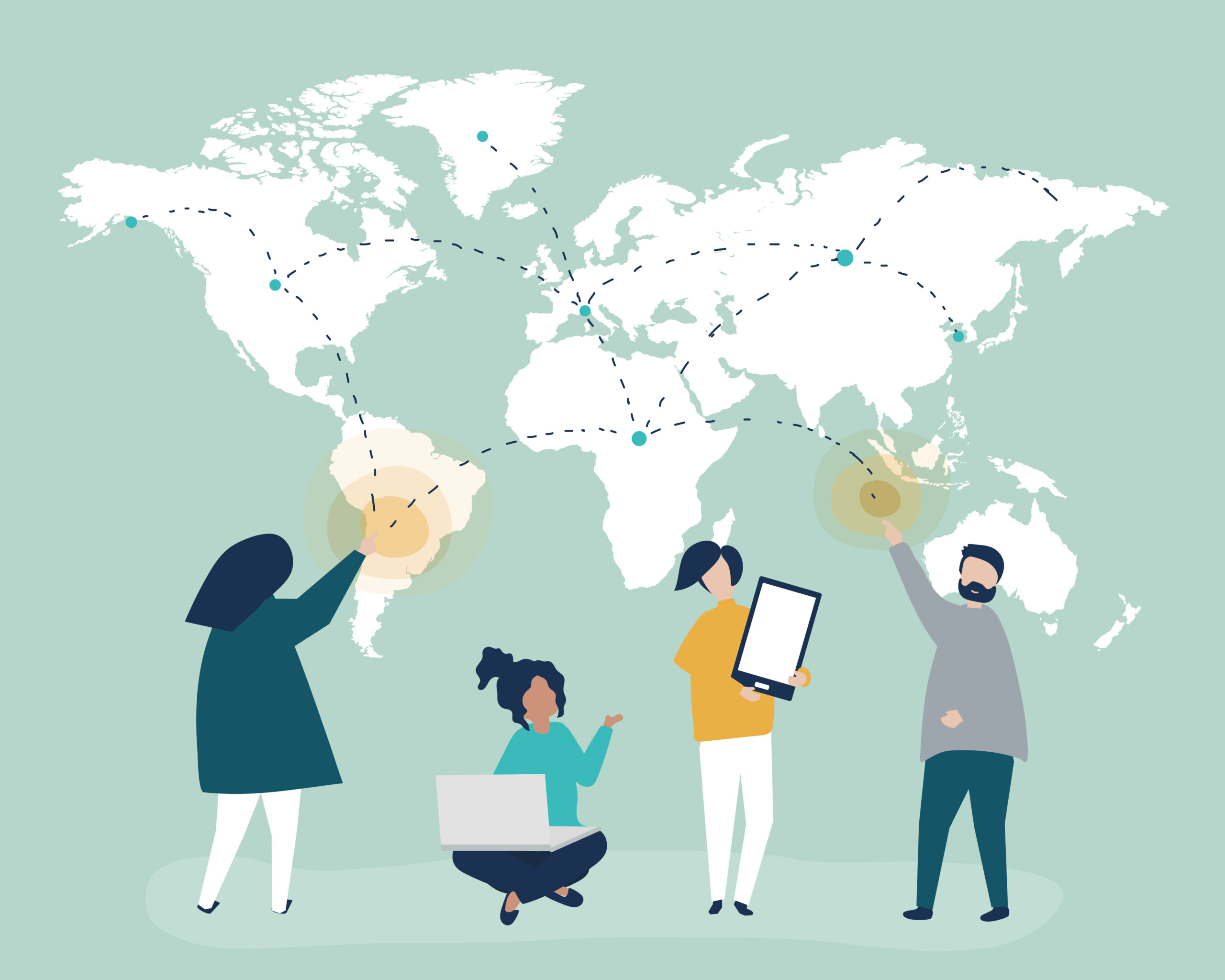
Navigating Localization Challenges: Our Insights for Success
Localization is a complex journey that involves much more than translating text. It requires careful strategy and execution to ensure that your content resonates with diverse audiences.
Recognizing common challenges in localization—and knowing how to overcome them—will help you achieve effective communication in new markets.
Here are key challenges to consider, along with our insights to guide you through the process:
Communicating Beyond Language
Language is just one aspect of effective communication.
Simply translating content doesn’t capture the full spectrum of cultural and contextual nuances needed for meaningful engagement.
Every detail, from your website’s layout to the length of your text, influences how your audience perceives your brand.
Our Insights:
To enhance localization, evaluate your content through three crucial dimensions:Perceptual Understanding: Consider how your target audience interprets sensory information.
Cultural Significance: Recognize the norms and meanings that certain symbols and colors hold in different cultures.
Core Values: Understand the beliefs that shape priorities within a culture.
By applying this multi-faceted perspective, you can create content that genuinely resonates with your audience.
Harmonizing Brand Voice with Cultural Expectations
Different cultures have unique communication styles and preferences.
What works in one region may not necessarily succeed in another, particularly if it clashes with local customs. For example, a brand that adopts a relaxed tone may find it ineffective in a market that values formality.
Our Insights:
Deepen your cultural understanding through thorough research to ensure your brand voice aligns with local norms.It’s important for all areas of your organization to acknowledge these cultural differences to communicate effectively.
Time and Cost Efficiency
Localization demands time and resources, and rushing through this process can compromise quality.
Companies that cut corners often risk poor results that can negatively impact sales and audience engagement.
Our Insights:
View localization as a vital investment in your business. Allow sufficient time for a detailed and thoughtful approach.Simplifying your content can also facilitate this process; utilize clear language and avoid idiomatic expressions that may not translate well.
Consider breaking down your content into modular components that can be easily localized.
Aligning Design and Content
The design elements of your content must adapt to various languages and formats.
Since language length and reading direction can differ significantly, ensuring design cohesion is critical.
Our Insights:
Centralize your localization efforts to ensure a consistent approach across all facets of your messaging.Partnering with a dedicated localization service provider can streamline communication and foster collaboration among teams, keeping efforts focused and efficient.
Preparing Your Infrastructure
Effective localization hinges on having the right infrastructure in place.
Your content management systems must be capable of supporting a variety of languages and cultural conventions to facilitate seamless operations.
Our Insights:
Assess your current systems to verify that they are prepared for a global audience. They should correctly handle local characters, currency formats, and date conventions.By ensuring your tools are up to the task, you’ll lay a solid groundwork for successful localization.
Successful Examples of Localization Strategies
Effective localization strategies are essential for brands looking to thrive in international markets.
Here, we explore examples of companies that have successfully adapted their offerings to cater to local audiences, along with key lessons learned from their experiences.

Netflix
As a leading streaming service available in 190 countries, Netflix has mastered the art of localization.
The company focuses on understanding cultural differences and customer preferences, which has been pivotal in its global success.
They provide subtitles and dubbing tailored to various markets, often prioritizing dubbed content in regions like Germany and Japan, where audiences favor it over subtitles.
Furthermore, Netflix invests in creating original programming that reflects local cultures, enhancing its appeal and maintaining viewer engagement across its diverse library.

Source: https://www.worldwildlife.org/
World Wildlife Fund (WWF)
The WWF exemplifies effective localization through its awareness campaigns.
Operating in over 50 languages, their website and marketing materials are tailored to local audiences, addressing relevant issues that resonate with each community.
For example, while the U.S. version focuses on specific wildlife legislation, the Spanish site highlights factory farming challenges, ensuring that each regional audience receives pertinent information that encourages action.
Source: https://medium.com/@pohzhinan/the-airbnb-way-connecting-the-hearts-of-gen-zs-through-fandom-part-1-88b5416d91b6
Airbnb
Airbnb has revolutionized the lodging industry with its localization strategy.
With listings in over 220 countries, the brand prioritizes multilingual support and user-generated content tailored to local languages. When users book accommodations, they receive travel guides and tips relevant to their destination, ensuring a personalized experience.
Airbnb’s commitment to understanding local cultures extends to partnerships with local businesses, enhancing its service offerings and customer relations.

Source: https://www.facebook.com/Dominos?locale=zh_HK
Domino’s Pizza
Domino’s has successfully navigated cultural differences to cater to local tastes in over 58 countries.
By customizing menus to reflect regional preferences—such as chicken tikka masala pizzas in India and pork-free options in Malaysia—Domino’s connects with customers on a deeper level.
This adaptability has allowed them to maintain a strong presence in competitive markets by aligning their offerings with local food customs.

Source: https://cocacolaunited.com/blog/2013/08/02/share-a-coca-cola-campaign-is-that-my-name-on-there/
Coca-Cola
Operating in more than 200 countries, Coca-Cola understands the importance of language and cultural context in its marketing efforts.
Notably, the “Share a Coke” campaign was localized by using culturally relevant names and phrases tailored to various regions, such as incorporating Irish names in Ireland or using broader terms for friendship in China.
Their attention to local customs has bolstered customer connections worldwide.
Source: https://seekingalpha.com/article/4712718-nintendo-gaming-powerhouse-fairly-valued-uncertain-future
Nintendo
Nintendo’s approach to video game localization sets a benchmark in the gaming industry.
The company emphasizes collaborative development and localization, ensuring that localization specialists work alongside game designers right from the outset.
This strategy allows Nintendo to create locally relevant gaming experiences that meet the expectations of gamers across different cultures, avoiding common pitfalls faced by competitors.
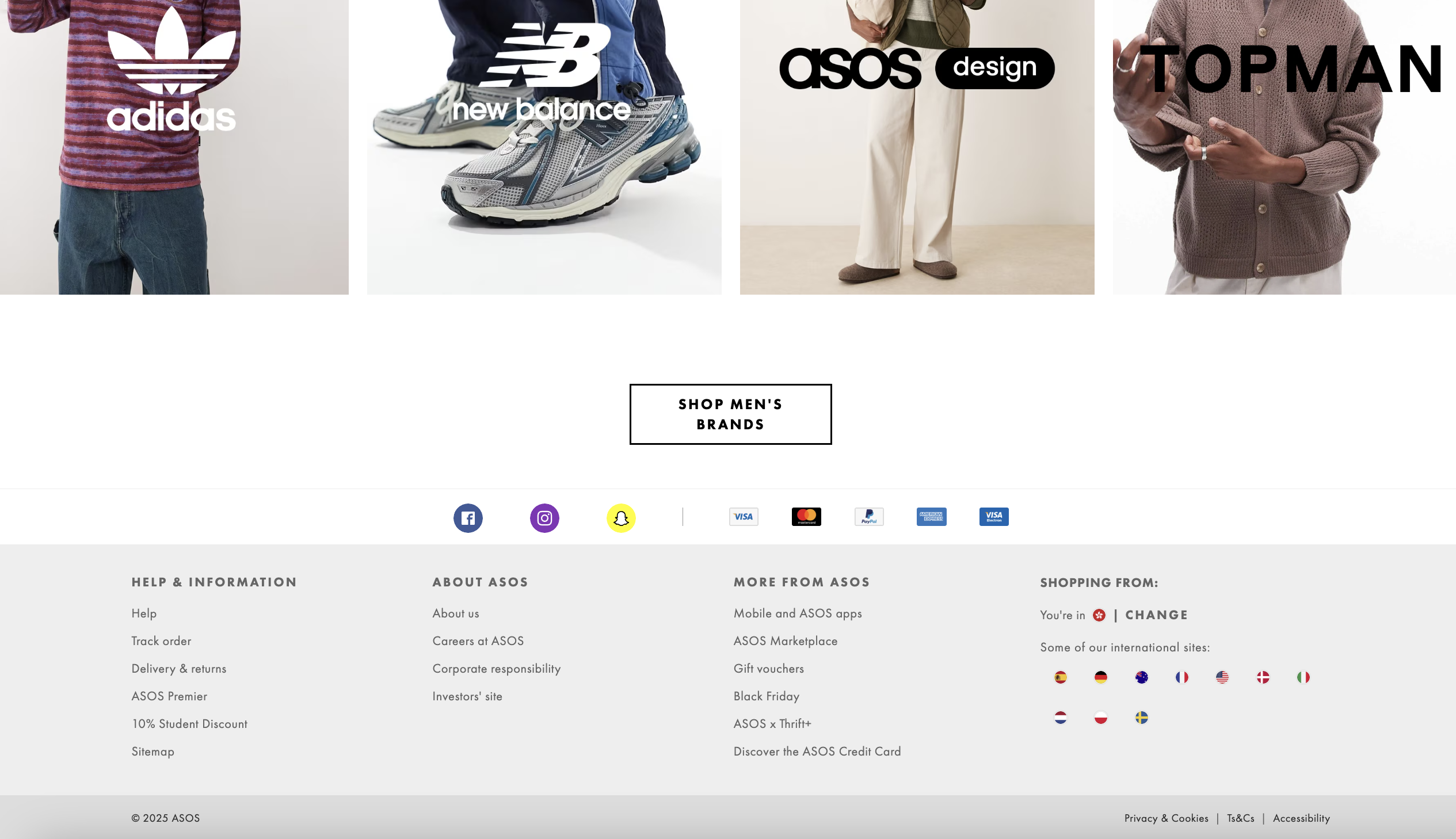
Source: https://www.asos.com/
ASOS
The e-commerce giant ASOS has made significant strides in international markets by localizing its online platform.
By translating product details into 7 major languages and providing diverse payment options, ASOS enhances accessibility for a global audience.
The user-friendly experience includes personalized promotional offers based on geographic location, thus maximizing engagement and sales.
Source: https://news.samsung.com/global/thinking-local-how-products-are-tailored-to-markets-2
Samsung
Samsung has successfully localized its products to fit various regional requirements.
For example, it launched a specific refrigerator design in South Korea optimized for storing kimchi, and in Africa, it developed televisions designed to withstand power surges.
By understanding unique local demands, Samsung ensures that its offerings are not only relevant but also enhance user satisfaction.
Key Takeaways
- Cultural Sensitivity is Crucial: Understanding local cultures, preferences, and communication styles is fundamental to successful localization.
- Invest in Original Content: Creating offerings that reflect local customs can significantly enhance brand relevance.
- Tailor Marketing Efforts: Adjust marketing strategies to resonate more deeply with local audiences, including language and imagery that aligns with community values.
- Collaboration is Key: Partnering with local experts can provide insights that streamline the localization process and yield positive outcomes.
- Continuous Adaptation: Treat localization as an ongoing effort. Regularly update and refine strategies based on consumer feedback and evolving market conditions.
By learning from these examples, brands can develop effective localization strategies that lead to deeper connections, increased loyalty, and ultimately, greater success in international markets.
The Future of Localization Strategy: Harnessing AI for Global Impact
Did you know that businesses using machine translation and automated language processing can save 25-30% on costs and speed up their time-to-market by 40-50%?
As brands look to expand internationally, the need for an effective localization strategy is more crucial than ever.
Cutting-edge technologies like AI and machine learning are transforming the localization landscape. Tools like OneSky streamline translation processes, enabling quick, accurate, and culturally relevant content that resonates with local audiences.
Imagine achieving high-quality translations that capture your brand’s voice and style in a fraction of the time—this is the power of OneSky.
Leverage AI to Shape Localization Strategy: Why?
1. AI and Machine Learning Revolution
Embrace the efficiency of AI-driven solutions to automate mundane localization tasks, allowing your team to focus on crafting authentic messages that connect with diverse audiences.
2. Cultural Insights at Your Fingertips
With advanced data analysis capabilities, AI equips brands with powerful insights into cultural nuances and preferences.
This intelligence ensures your content is not just translated but meaningfully adapted, strengthening your global presence.
3. Effortless Collaboration
Future localization strategies will leverage platforms that enable seamless teamwork across geographies.
With AI-powered tools like OneSky, updates and changes can be made in real time, keeping your content fresh and relevant.
4. Continuous Adaptation and Growth
AI technology fosters a cycle of continuous improvement.
By analyzing consumer feedback and performance metrics, your localization strategy can evolve to meet changing market trends, ensuring sustained engagement.
Unlock Your Brand’s Global Potential with OneSky
Incorporating OneSky into your localization strategy unlocks unparalleled opportunities for your brand.
With a comprehensive suite of AI-powered translation tools, you can create captivating, high-quality content that speaks to local audiences—fast!
OneSky is an agentic AI localization software that can translate your products into 50 languages across 70 countries in the world. It offers a translation management system (TMS) that can automate your localization workflows and streamline traditional translation processes.
The main features of OneSky’s TMS are:
- It enables you to directly communicate with translators and provide them with the context for the localization.
- It comes with an automated technical validation system that ensures your translated content does not have any missing placeholders.
- It supports over 19 file formats for your mobile app, video game, marketing materials, and website localization.
- It provides a dashboard from where you can manage all your localization projects.
- It offers on-device localization testing that enables you to identify inaccuracies in the localized content before releasing the product to the actual market.
- It facilitates integrations with popular development platforms for a seamless localization experience.
Want to make OneSky a part of your localization strategy? Sign up for free today!









 Written by -
Written by - 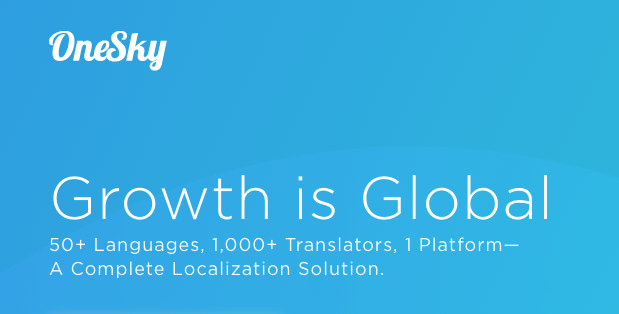

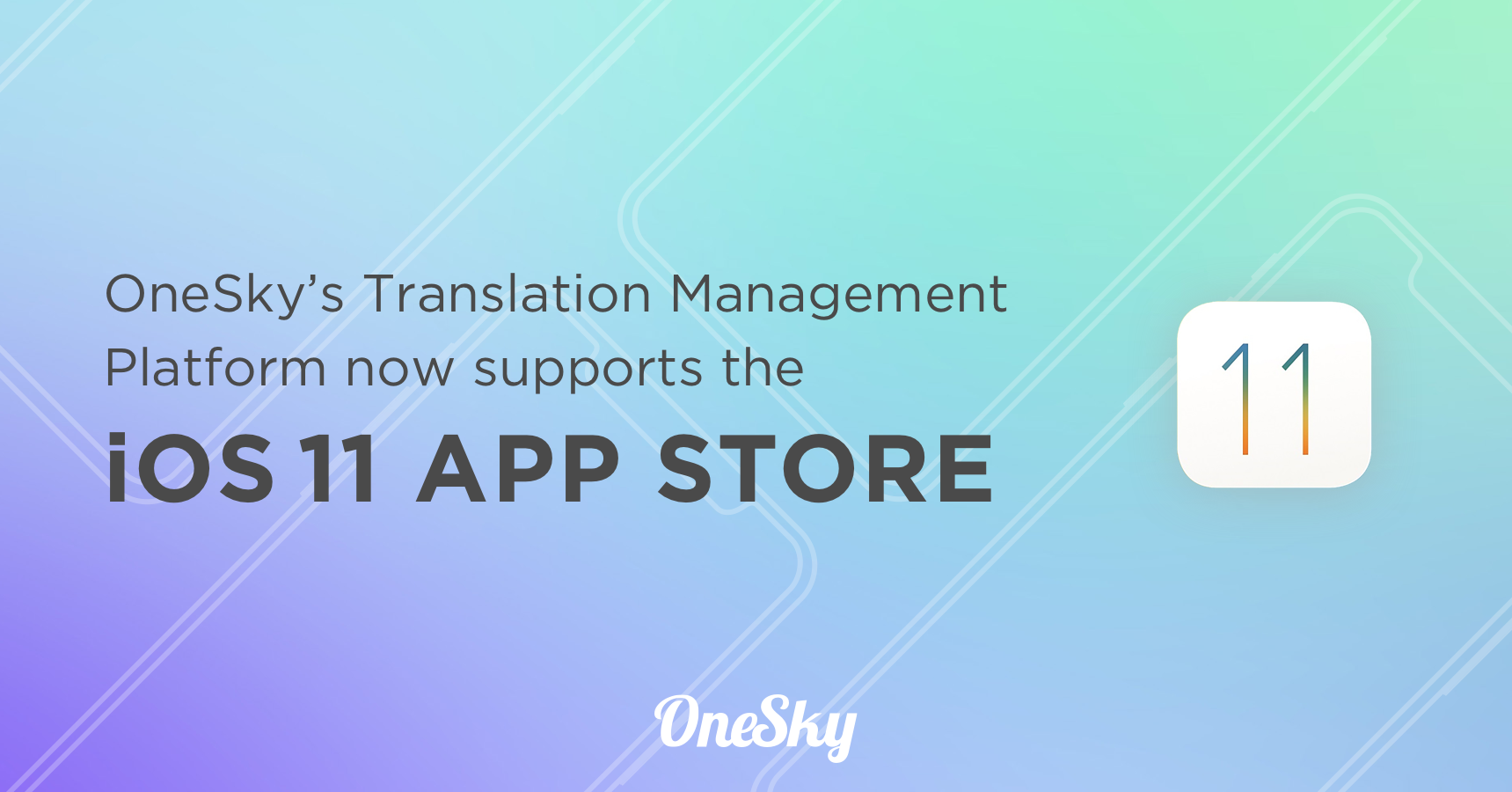
 Written by
Written by 

